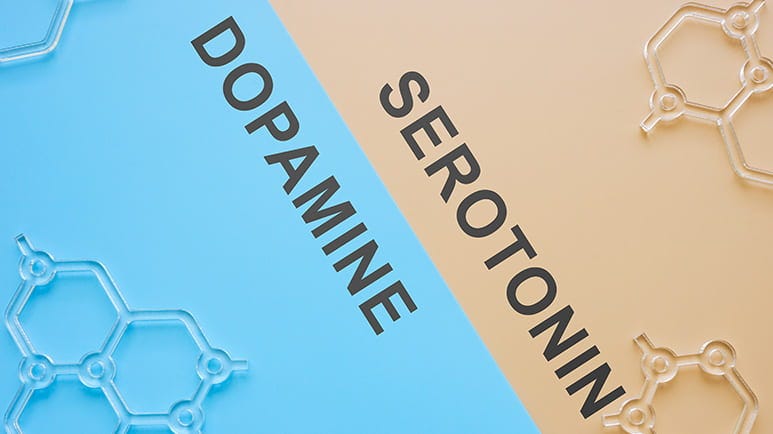Revisiting Depression — Dopamine-Serotonin Balance Gains Attention for Treatment-Resistant Depression
Description
STORY AT-A-GLANCE
A major clinical trial in The Lancet Psychiatry found that boosting dopamine with pramipexole improved symptoms in treatment-resistant depression. This challenges the long-dominant serotonin deficiency theory
Supporting those findings, another study showed that agomelatine, a serotonin-blocking drug, consistently reduced anxiety and depression in multiple placebo-controlled trials
Research shows polyunsaturated and monounsaturated fats (PUFs and MUFs) directly trigger platelet aggregation and serotonin release, while saturated fats do not, linking modern diets to serotonin excess
Studies confirm that combinations of unsaturated fats amplify serotonin release even at sub-threshold levels, making everyday dietary choices especially relevant to serotonin-driven health risks and mood instability
Increasing GABA helps your body break down serotonin, restoring calm, better sleep, and mood stability without SSRI side effects, making it a safer alternative for addressing depression and anxiety

Depression is one of the most common mental health challenges today, affecting 332 million people worldwide.1 In the United States alone, over 21 million adults experience at least one major depressive episode each year.2 For decades, the prevailing theory has been that depression stems from a lack of serotonin, the brain’s so-called “happiness chemical,” and treatments have largely focused on raising serotonin levels through selective serotonin reuptake inhibitors (SSRIs).3
Yet many of those who turn to medication continue to struggle, leading to the recognition of what is now called treatment-resistant depression.4 As the number of people in this group has grown, scientists have begun to probe deeper into the brain’s chemistry, and what they are finding challenges long-held assumptions.
Emerging research points to an excess of serotonin, not a shortage, as a driving factor in depression. This perspective is gaining strength, supported by a recent major clinical trial in The Lancet Psychiatry,5 where researchers tested an approach aimed not at boosting serotonin but at restoring balance between serotonin and dopamine — two opposing neurotransmitters that shape mood, motivation, and emotional stability.
Can Dopamine Agonists Help Treat ‘Untreatable’ Depression?
The featured study, conducted by the University of Oxford, focused on pramipexole, a drug originally licensed for Parkinson’s disease, which works by boosting the brain chemical dopamine. Low dopamine function is strongly associated with loss of motivation, inability to feel pleasure, and poor stress resilience. Researchers set out to test whether pramipexole could help people living with treatment-resistant depression.6 7
The trial design tested dopamine augmentation alongside existing care — The trial enrolled 150 patients across the U.K., with equal numbers assigned to receive either pramipexole or a placebo for 48 weeks. All participants continued their existing antidepressant medication during the trial period.
Pramipexole produced clear and sustained improvements — By the 12th week, those receiving pramipexole showed clear improvements in depressive symptoms compared to the placebo group, and these benefits were maintained across the nearly year-long trial. The results stood out because sustained improvements of this kind are rarely seen in patients already classified as resistant to conventional therapies.
Side effects limited tolerability for a subset of patients — Around one in five individuals in the pramipexole group discontinued treatment due to adverse effects. Reported side effects included nausea, dizziness, and disturbances in sleep. While these issues limited the drug’s tolerability for some, the majority of patients who continued saw meaningful gains in mood and function.
The trial built on earlier exploratory signals but provided the first long-term evidence — Previous small-scale studies hinted at antidepressant benefits from pramipexole, but data on durability were lacking. This trial delivered the strongest evidence yet. According to Professor Michael Browning from the Department of Psychiatry at Oxford, who led the trial:
“These findings on pramipexole are a significant breakthrough for patients for whom antidepressants and other treatments and therapies have not worked.
<label class="hide-text" contenteditable="false">Text within this block will maintain its original spacing when published</label>Pramipexole is a medicine licensed for Parkinson’s disease and works by boosting the brain chemical dopamine. This differs from the majority of other antidepressant medications which act on brain serotonin and may explain why pramipexole was so helpful in this study.”8
The key takeaway from this trial is that boosting dopamine activity — and lowering serotonin in the process — was effective where standard treatments had failed. It shows that so-called “untreatable” depression can, in fact, respond when approached from the opposite direction of conventional medicine.
Further Research Shows Blocking Serotonin Calms Stress and Lifts Mood
The evidence for serotonin excess is reinforced by clinical trials of drugs that block serotonin activity rather than raise it. Agomelatine, a selective antagonist of the 5-HT2C receptor, which is one of serotonin’s key docking points, has demonstrated clear antidepressant and anxiolytic effects in multiple placebo-controlled studies. This shows that lowering serotonin signaling helps relieve symptoms of both depression and anxiety.9 10
Blocking serotonin activity directly addresses stress pathways — The 5-HT2C receptor regulates adrenocorticotropic hormone (ACTH) release, which in turn drives the production of cortisol, the body’s primary stress hormone. When serotonin overstimulates this receptor, stress pathways become overactive, worsening both anxiety and depression.
<label class="hide-tex






